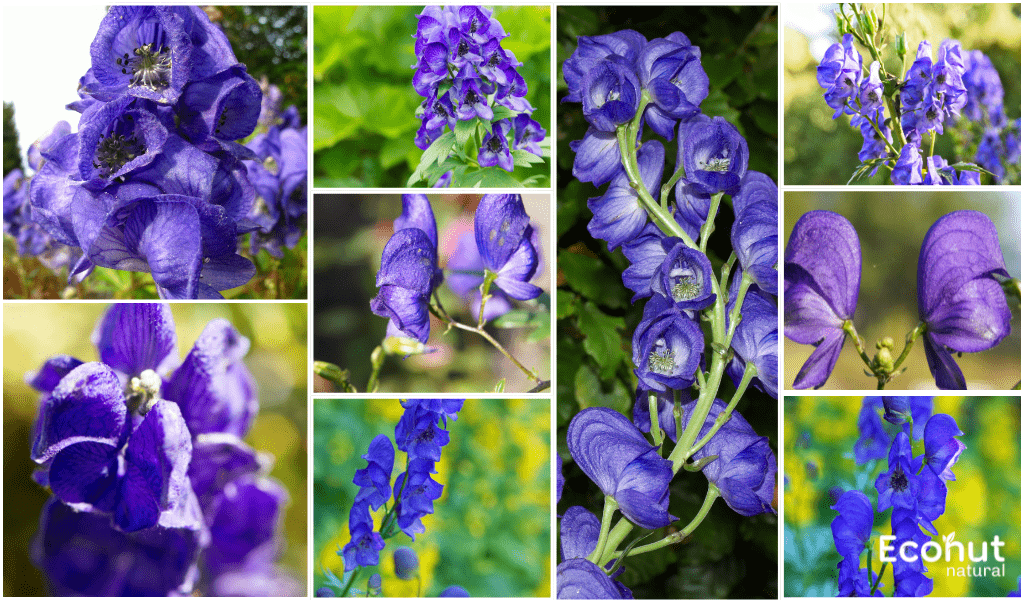Atis (Aconitum Heterophyllum) is a perennial herb used in classical Ayurvedic medicine that is a member of the Ranunculaceae family, which includes buttercups. The plant is indigenous to the Sikkim, Nepal, and neighboring regions of southern Tibet and Kashmir up to the Kumaun highlands at elevations between 2500 and 3900 meters in the Western Himalayas.
Because atis roots can raise HDL cholesterol and lower triglyceride levels, they can also aid in healthy weight loss. In addition, the plant possesses antitussive, anthelmintic, antipyretic, and anti-inflammatory qualities.
Description
One of the best herbs for children’s digestive issues is this one. It is excellent for maintaining a healthy digestive tract and has a carminative function. Ativisha, which meaning “toxic,” is regarded as one of the most effective medicinal herbs in Ayurveda despite its toxic qualities.
Botanical Name:
Aconitum Heterophyllum
Family:
Ranunculaceae
Leaves:
Leaves varied in size and form, but often heart-shaped to rounded in outline. Their length ranges from 5 to 10 cm, and their edges are highly serrated. The higher leaves cling to the stem directly.
Flowers:
Large, hooded, white to violet in hue In August through October, during the third year of the plant’s development cycle, they bloom in loose, spike-like clusters.
Roots (Tubers):
The most important area in terms of medicine. Atis has paired cylindrical or conical tuberous roots with a hint of yellowish-grayish white. They taper toward the ends and can reach a maximum length of 3 cm.
Habitat:
Accessible between 2500- 3500 meters on the slopes in subalpine and alpine regions
Parts Used:
- Root
- Tubers
Dosage:
- For grown-ups: 1-3 gram per day.
- Children: 1 gram per day, in divided doses.
Chemical Constituents
Many of the alkaloids, polysaccharides, free fatty acids, amide alkaloids, diterpenoids, and flavonoids found in Aconitum medicinal plant species have a variety of functions
Medicinal Properties of Ativisha (Aconitum heterophyllum)
- Anthelmintic
- Antidiarrheal
- Anti-hemorrhoidal
- Absorbent
- Carminative
- Aphrodisiac
- Blood purifier
- Antimalarial
- Anti-dysenteric
- Breastmilk detoxifier
- Anti-obesity
- Antitussive
- Styptic
- Antipyretic
- Antiperiodic
- Antidote
- Digestive
- Stomachic
- Antiemetic
- Amapachak – detoxifier
- Anti-inflammatory
- Antimicrobial
- Antihyperlipidemic
- Antioxidant
Synonyms of Ativisha
Aconitum Heterophyllum, Indian Atees, Atis Root, Ativishni Kali, Ativikhani Kali, Ativisha, Athihage, Atividayam, Ativisha,Atibage, Ativish, Ati Vasa, Aruna, Ghunapriya, Visa, Aatich, Ataicha, Atushi, Atisa, Atees, Ativasa, Kashmeera, Shuklakanda, Bhangura, Vishva.
Other Language Names of Ativisha (Aconitum heterophyllum)
Hindi name – Atis, Atees
Malayalam name – Atividayam, Athividayam, Atividyam, Ativisam
Marathi name – Ativish
English name – Indian Atees
Bengali name – Ataich
Kannada name – Ativisha, Atibage
Persian name – Vajjeturki
Punjabi name – Atis
Telugu name – Ati Vasa
Gujarati name – Ativakhani Kali, Ativish
Konkani name – Atibaje
Scientific Classification
Kingdom – Plantae
Order – Ranunculales
Family – Ranunculaceae
Genus – Aconitum
Ayurvedic Properties
Hindi/Sanskrit
- Rasa -Katu,Tikta
- Guna -Laghu,Rouksha
- Virya -Ushna
- Vipaka -Katu
- Prabhava – Vishara
English
- Taste -Pungent, Bitter
- Physical Property-Light, Dry
- Potency- Hot
- Metabolic Property (After Digestion)-Pungent
- Exclusive Action – Anti – Toxic
Ativisha (Aconitum heterophyllum) Uses
Powder:
Mix honey with one teaspoon of Ativisha powder. To relieve indigestion, have it first thing in the morning.
As Extract:
Add honey to one or two pinches of Ativisha essence. Give it to kids who have a fever, bloating, or loose motion in the morning.
As Kwatha:
Using two to three teaspoons, take Ativisha kwatha. Pour in the same amount of honey and water. Drink after meals twice a day to relieve dyspepsia.
Oil:
Take one or two tsp of Attivisha (Aconitum heterophyllum) oil. Spoon a tiny bit of sesame oil onto the affected area to reduce inflammation and soreness in your joints; repeat this two to three times a week
Don’t miss: Vidarikand (Pueraria Tuberosa) -Uses, Benefits, Dosage & Side Effects
Ativisha (Aconitum heterophyllum) Benefits
The best herb for digestion:
Facilitating better digestion is one of Ativisha’s most significant health advantages. Ativisha is the greatest plant, according to Ayurveda, for its carminative, absorbent, and digestive qualities. It facilitates healthy food assimilation and aids in digestion.
Weight Loss:
Atis root’s high flavonoid content speeds up the body’s weight loss process. When taken consistently, the formulation of Atis, which contains fiber and has anti-obesity properties, satisfies acute hunger pains and inhibits overeating, which makes it a valuable tool in weight loss regimens. Additionally, the herb helps the body manage weight by reducing the build-up of LDL, or low-density lipoproteins, or bad cholesterol.
Fever management in children:
One of the best herbs for treating a child’s fever is astivisha. Its antipyretic properties aid in reducing and preventing fever. It reduces fever by acting as a diaphoretic and causing perspiration.
Great for detoxification:
Ativisha is an excellent herb for the body’s overall cleansing. Children can be given the root powder to help get rid of worms in their bodies. It also strengthens immunity and cleanses the blood.
Good for the Heart
As a naturally occurring antioxidant and a plant that protects the heart, it is important in the treatment of many heart conditions. By calming the mind, it relaxes the cardiac system, which is quite helpful for people who have palpitations and arrhythmias. In addition, it helps lower blood pressure, strengthen heart muscles, lower cholesterol levels, and prevent lipid buildup, all of which lower the risk of atherosclerosis, heart blocks, heart attacks, blood clots, and other heart-related conditions.
Fights Respiratory Issues:
Thanks to its potent anti-inflammatory, antimicrobial, and anti-asthmatic qualities, atis is a popular traditional treatment for a variety of respiratory conditions. It is often used to treat symptoms of the flu, sore throat, cough, and common cold.
Ativisha (Aconitum heterophyllum) Side Effects
Digestive problems:
Ativisha may result in diarrhea, vomiting, nausea, and pain in the abdomen.
Neurological problems:
Ativisha poisoning can cause paralysis, tingling and numbness in the extremities, and even death in extreme circumstances.
Cardiac problems:
Ativisha may cause irregular heartbeats and a slowing of the heart rate.
Skin irritation:
Skin and eyes may become irritated when exposed to Ativisha.
Conclusion
One such potent plant with a multitude of health advantages is atis. It is frequently used to treat gastrointestinal disorders like constipation, indigestion, diarrhea, dysentery, piles, flu and feverish conditions, managing cough and cold, sore throat, treating respiratory diseases, relieving inflammatory conditions, etc. because of the goodness of the essential bio-active ingredients and host of curative qualities.
FAQS
What Are The Potential Medicinal Uses Of Atis?
Numerous respiratory and digestive conditions, as well as potential applications as an anti-inflammatory and immunomodulatory agent, are among the traditional therapeutic uses of Aconitum Heterophyllum.
What is the botanical name of Ativisha?
Aconitum heterophyllum
Can Women Who Are Breastfeeding Or Pregnant Use Atis?
Pregnant or lactating women are advised not to use it due to possible negative consequences.
Are There Any Side Effects Or Safety Concerns With Atis?
Yes, if used improperly, the alkaloids in Aconitum Heterophyllum can be hazardous. It ought to be taken under strict monitoring and with caution. Overindulgence may result in negative consequences such as neurological problems and upset stomach.

